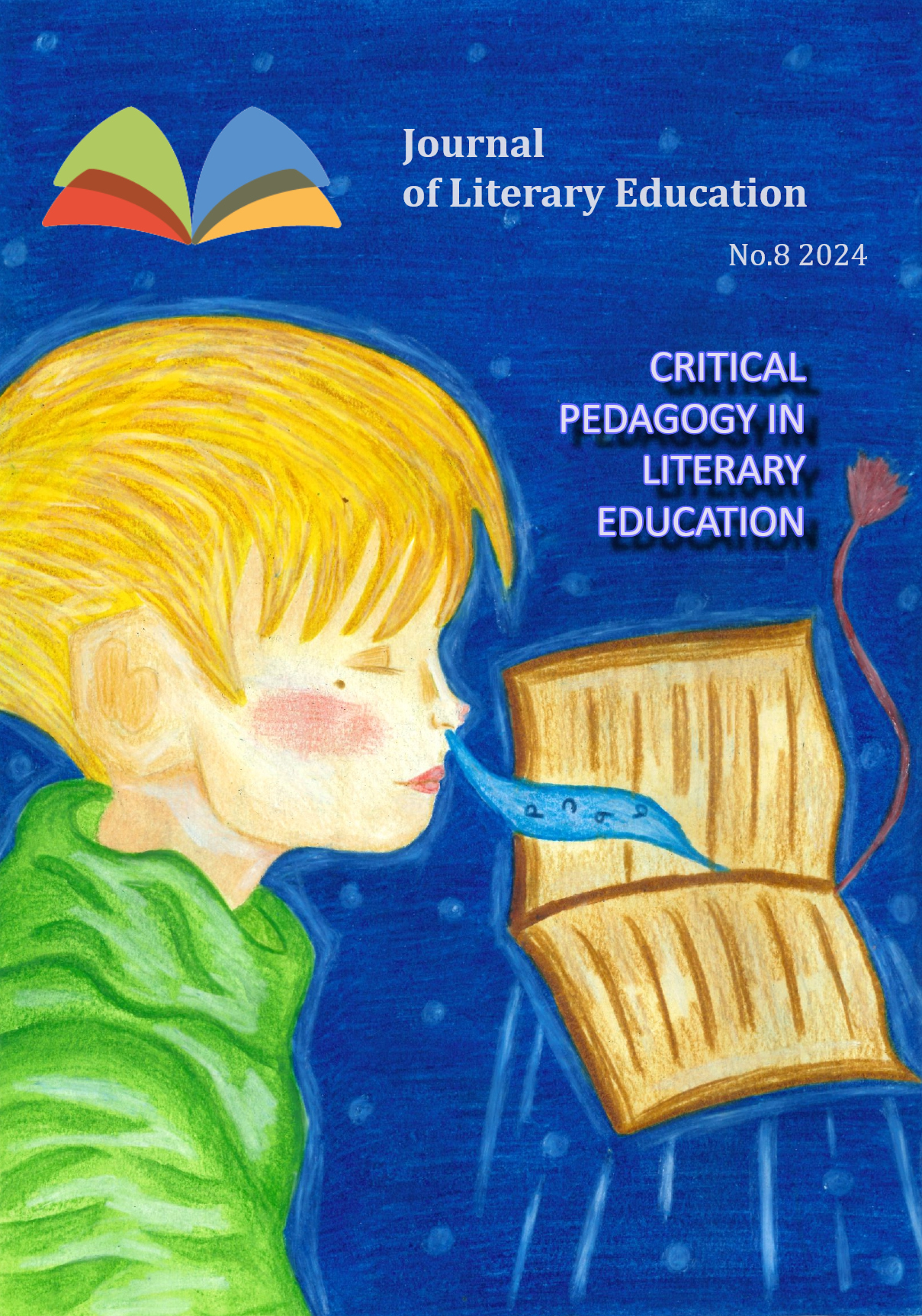Who am I really? Contemporary Narratives of Migration as an Inspiration for Self-discovery
DOI:
https://doi.org/10.7203/JLE.8.27650 Abstract
Abstract
Abstract
The aim of this article is to present the results of a study of children's reception of Sarah Crossan's novel The Weight of Water ([2012] 2019). The book shows the process of emotional and social maturation of a girl coming from a Polish family affected by the experience of migration. Letters written by primary school pupils to Kasia, the fictional protagonist, bravely struggling with family problems and peer bullying, were analysed. The cognitive science research we carried out on the reception of literature shows that Crossan's novel serves the self-discovery of the audience, but it also exposes the image of a transnational family, and shows the broader social context of considering the migratory cultural adaptation of a teenage girl. Thus, the case of Kasienka becomes an "element" of building the image of contemporary migrant identity.
Resumen
El objetivo de este artículo es presentar los resultados de un estudio sobre la recepción de la novela The Weight of Water ([2012] 2019) de Sarah Crossan por parte de niños y niñas. El libro retrata el proceso de maduración emocional y social de una niña de una familia polaca afectada por la experiencia de la migración. Se analizaron cartas escritas por alumnos de primaria dirigidas a Kasia, la protagonista ficticia, que lucha valientemente contra problemas familiares y el acoso por parte de sus compañeros. La investigación en ciencias cognitivas sobre la recepción de la literatura que hemos realizado muestra que la novela de Crossan favorece el autodescubrimiento de los lectores, al tiempo que expone la imagen de una familia transnacional y reflexiona sobre el contexto social más amplio de la adaptación cultural migratoria de una adolescente. Así, el caso de Kasienka se convierte en un "elemento" en la construcción de la identidad migrante contemporánea.
Resum
L'objectiu d'aquest article és presentar els resultats d’un estudi sobre la recepció de la novel·la The Weight of Water ([2012] 2019) de Sarah Crossan per part dels infants. El llibre retrata el procés de maduració emocional i social d’una jove d’una família polonesa afectada per l’experiència de la migració. Es van analitzar cartes escrites per alumnes de primària adreçades a Kasia, la protagonista fictícia, que lluita amb valentia contra problemes familiars i assetjament per part dels seus companys. La investigació en ciències cognitives sobre la recepció de la literatura que hem realitzat mostra que la novel·la de Crossan afavoreix l’autodescobriment dels lectors, alhora que exposa la imatge d’una família transnacional i reflexiona sobre el context social més ampli d’adaptació cultural migratòria d’una adolescent. Així, el cas de Kasienka esdevé un "element" en la construcció de la identitat migrant contemporània.
 Downloads
Downloads
Downloads
Published
-
Abstract0
-
PDF0
Issue
Section
License
Copyright (c) 2025 Justyna Zaj?c, Dorota Michu?ka

This work is licensed under a Creative Commons Attribution-NonCommercial-NoDerivatives 4.0 International License.
![]()
This work is licensed under a Creative Commons Attribution-NonCommercial-NoDerivatives 4.0 International License.
Authors who publish with this journal agree to the following terms: Authors retain copyright and grant the journal right of first publication with the work simultaneously licensed under a Creative Commons Attribution License that allows others to share the work with an acknowledgement of the work's authorship and initial publication in this journal. Authors are able to enter into separate, additional contractual arrangements for the non-exclusive distribution of the journal's published version of the work (e.g., post it to an institutional repository or publish it in a book), with an acknowledgement of its initial publication in this journal. Authors are permitted and encouraged to post their work online (e.g., in institutional repositories or on their website) prior to and during the submission process, as it can lead to productive exchanges, as well as earlier and greater citation of published work (See The Effect of Open Access).



